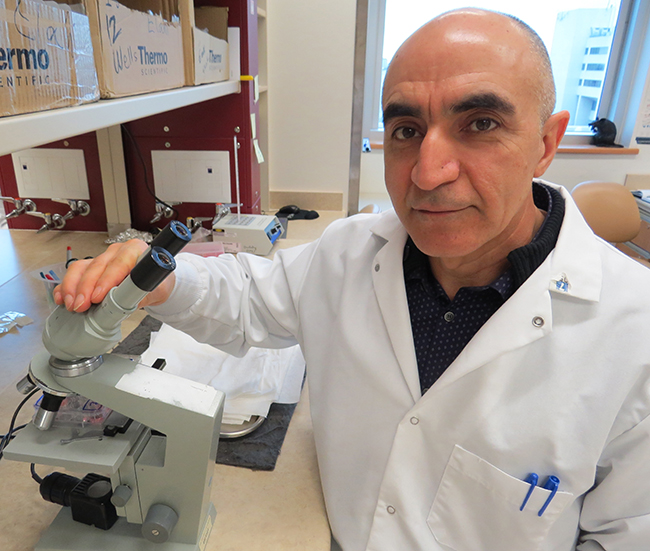
University of Alberta researcher and immunologist Shokrollah Elahi has found that vaccinations received during pregnancy can benefit the newborn.
Women who receive vaccinations during pregnancy are not just protecting themselves. Univeristy of Alberta researchers have discovered they are also educating their newborns immune systems.
"By getting vaccinated, pregnant women are reducing the chances of allergies and asthma in newborns," says Shokrollah Elahi, immunologist and researcher at the School of Dentistry. "Therefore, vaccination could be used as a potential strategy to protect both the mother and their newborn against life threatening infections."
Past research has shown that pregnant women who receive vaccinations during pregnancy produce antibodies (proteins produced by the immune system), and pass them on to their newborns.
However, it's never been proven that cytokines (small proteins), responsible for regulating the immune system, are able to be passed onto a newborn until now.
"Our study demonstrates cytokines are transferred to a newborn. We found them in the colostrum and milk of vaccinated mothers, and these mothers subsequently pass them onto their newborns," says Elahi. "These transferred cytokines can educate the newborn's immune system. Potentially they may help to make newborns more resistant to asthma and allergies. In a sense, it's adding an extra layer of protection."
During pregnancy, women are often vaccinated against whooping cough, diphtheria, and tetanus. Elahi explained that while the vaccination is for these illnesses, the cytokines produced from the vaccination can translate into extra protection again other diseases.
"This additional effect from the vaccine is quite beneficial," says Elahi, adding his research team employed animal models to measure and compare the amount of cytokines in milk from vaccinated and non-vaccinated mothers.
The research is published in the academic journal Infection and Immunity.